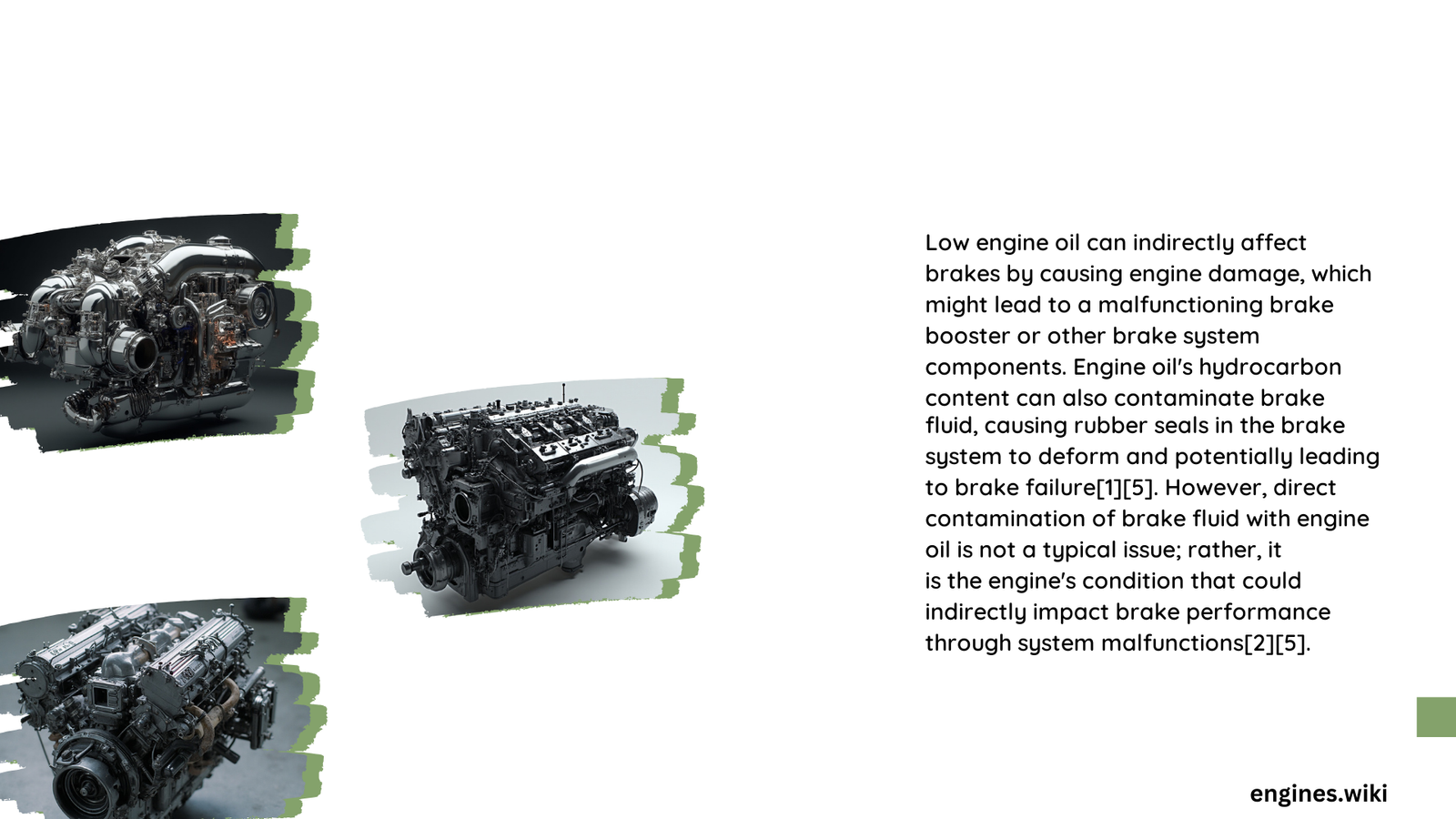Low engine oil levels can subtly compromise vehicle brake performance through complex mechanical interactions. While not directly causing brake failure, insufficient oil can disrupt critical engine systems like vacuum boosters and hydraulic mechanisms, potentially reducing brake efficiency and increasing potential safety risks during driving. Understanding these nuanced connections is crucial for proactive vehicle maintenance and driver safety.
Can Low Engine Oil Compromise Brake System Functionality?
How Does Engine Oil Impact Brake Performance?
Engine oil plays a multifaceted role in vehicle systems beyond simple lubrication. Its impact on brake performance is indirect but significant, involving several critical mechanical interactions:
Vacuum Booster System Dynamics
- Vacuum Generation Mechanisms
- Engine-driven vacuum pumps require proper lubrication
- Low oil levels can reduce pump efficiency
-
Decreased vacuum generation affects brake pedal responsiveness
-
Performance Indicators
- Hard brake pedal
- Increased stopping distances
- Reduced braking system sensitivity
| Oil Level | Vacuum Pump Performance | Brake System Impact |
|---|---|---|
| Normal | Optimal | Consistent |
| Low | Reduced | Potentially Compromised |
| Critical | Failure Risk | High Safety Concern |
What Mechanical Components Are Affected?
Several interconnected systems can experience performance degradation with low engine oil:
- Vacuum Pump Lubrication
- Belt-driven pumps require consistent oil circulation
- Insufficient lubrication leads to premature wear
-
Potential complete pump failure
-
Engine Performance Indicators
- Reduced vacuum generation
- Potential overheating
- Inefficient overall engine operation
Why Should Drivers Monitor Oil Levels?
Proactive maintenance prevents potential brake system complications:
- Regular oil level checks
- Adherence to manufacturer-recommended change intervals
- Using manufacturer-specified oil grades
- Monitoring overall vehicle system performance
Technical Considerations for Brake System Health
Key Maintenance Recommendations:
– Perform quarterly oil level inspections
– Follow manufacturer’s maintenance schedule
– Use high-quality, recommended engine oil
– Address any unusual brake or engine performance immediately
Financial and Safety Implications
Neglecting engine oil maintenance can result in:
– Expensive brake system repairs
– Potential safety risks during driving
– Reduced vehicle performance
– Increased long-term maintenance costs
Expert Insights on Oil and Brake Interactions
Professional mechanics emphasize that while low engine oil doesn’t directly cause brake failure, the cascading effects can significantly compromise vehicle safety. The intricate relationship between engine systems demands holistic maintenance approaches.
Preventive Strategies
- Monthly Oil Level Checks
- Professional Periodic Inspections
- Immediate Response to Warning Indicators
- Comprehensive Vehicle Diagnostics
Conclusion
Understanding the nuanced relationship between engine oil and brake performance empowers drivers to maintain optimal vehicle safety. Regular maintenance, attentive monitoring, and proactive care remain the most effective strategies for ensuring reliable brake system functionality.
Warning Signs to Monitor
- Unusual brake pedal resistance
- Decreased braking responsiveness
- Engine performance fluctuations
- Persistent dashboard warning lights
Reference:
– SAE International Lubrication Standards
– National Highway Traffic Safety Administration
– Automotive Maintenance Guidelines

